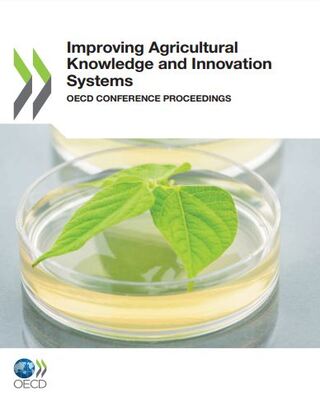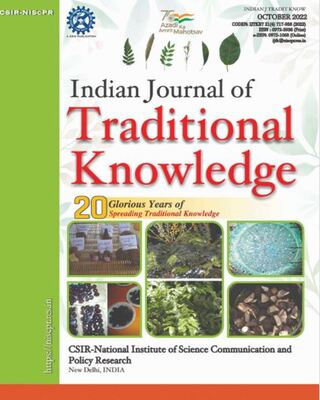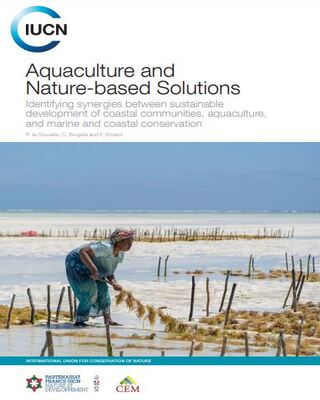Knowledge Hub
Mountain Women of the World – Challenges, Resilience and Collective Power
2022
Author(s): Food and Agriculture Organization of the United Nations
This publication highlights the stories and voices of mountain women, with a focus on rural areas and mountain tourism, and outlines a path forward to promote their empowerment and help them to realize their potential as agents of sustainable mountain development. It includes on-the-ground interviews with mountain women in eight countries (Argentina, Bolivia, Chile, Italy, Kenya, Kyrgyzstan, Nepal and the United Republic of Tanzania) and the results of a global survey.

Improving Agricultural Knowledge and Innovation Systems: OECD Conference Proceedings
2012
Author(s): Organization for Economic Cooperation and Development
This conference proceedings from the OECD Conference on Agricultural Knowledge Systems (AKS), held in Paris, on 15-17 June 2011, discusses a large range of experiences and approaches to AKS explores how to foster development and adoption of innovation to meet global food security and climate change challenges. The conference considered developments in institutional frameworks, public and private roles and partnerships, regulatory frameworks conducive to innovation, the adoption of innovations and technology transfers, and the responsiveness of AKS to broader policy objectives.

Plants and Culture: Plant Utilization Among the Local Communities in Kabayan, Benguet Province, Philippines
2018
Author(s): Balangcod TD, Balangcod KD
This paper provides an overview of the project undertaken in Cordillera region in the northern most part of the Philippines to determine the useful plants and document the traditional knowledge that are associated with the useful plants.

Aquaculture and nature-based solutions: identifying synergies between sustainable development of coastal communities, aquaculture, and marine and coastal conservation
2022
Author(s): Gouvello R, Brugere C, Simard F
The present report examines the emerging concept of Nature-based Solutions (NbS) and the IUCN Global Standard (IUCN, 2020a) when applied to social-ecological systems that include aquaculture production.
Indigenous Peoples’ Food Systems: Insights on Sustainability and Resilience from the Front Line of Climate Change
2021
Author(s): Food and Agriculture Organization of the United Nations
This publication provides an overview of the common and unique sustainability elements of Indigenous Peoples' food systems, in terms of natural resource management, access to the market, diet diversity, indigenous peoples’ governance systems, and links to traditional knowledge and indigenous languages.
Essential Rights for Community Forest Management
2020
Author(s): Friends of the Earth International
This paper outlines all the rights that peoples practicing CFM should enjoy. On the one hand, this is to ensure they can live in their territories, and be able to control their lives and preserve their cultures—which involve living in harmony with the ecosystems they inhabit. On the other hand, this would enable them to continue fulfilling the role of traditional caretakers and guardians of Nature, which ensures their ability to remain in their territories.
State of the Arctic Terrestrial Biodiversity Report - START
2021
Author(s): Aronsson, M et al
The report describes status and trends on key biotic elements in the terrestrial Arctic. It is based on Arctic Terrestrial Biodiversity Monitoring Plan and provides an important milestone towards its implementation. CBMP (Circumpolar Biodiversity Monitoring Program) is the core programme of the Conservation of Arctic Flora and Fauna Working Group (CAFF) of the Arctic Council.
Forest Governance by Indigenous and Tribal Peoples: An Opportunity for Climate Action in Latin America and the Caribbean
2021
Author(s): Food and Agriculture Organization of the United Nations
The document summarizes the report that, based on a review of more than 250 studies, demonstrates the importance and urgency of climate action to protect the forests of the indigenous and tribal territories of Latin America as well as the indigenous and tribal peoples who protect them. These territories contain about a third of the continent's forests. That's 14% of the carbon stored in tropical forests around the world; These territories are also home to an enormous diversity of wild fauna and flora and play a key role in stabilizing the local and regional climate.
The state of food security and nutrition in the world 2022: repurposing food and agricultural policies to make healthy diets more affordable
2022
Author(s): Food and Agriculture Organization of the United Nations
The report highlights the intensification of major drivers of food insecurity and malnutrition: conflict, climate extremes and economic shocks, combined with growing inequalities. The issue at stake is not whether adversities will continue to occur or not, but how we must take bolder action to build resilience against future shocks.

This book explores how local communities around the world are successfully responding to threats to the environment and local livelihoods. As communities continue to make a difference at the forefront of conservation, it is an auspicious moment to explore the links of community environmental stewardship, sustainable livelihoods and government engagement, and to appreciate the ‘power of community’.



